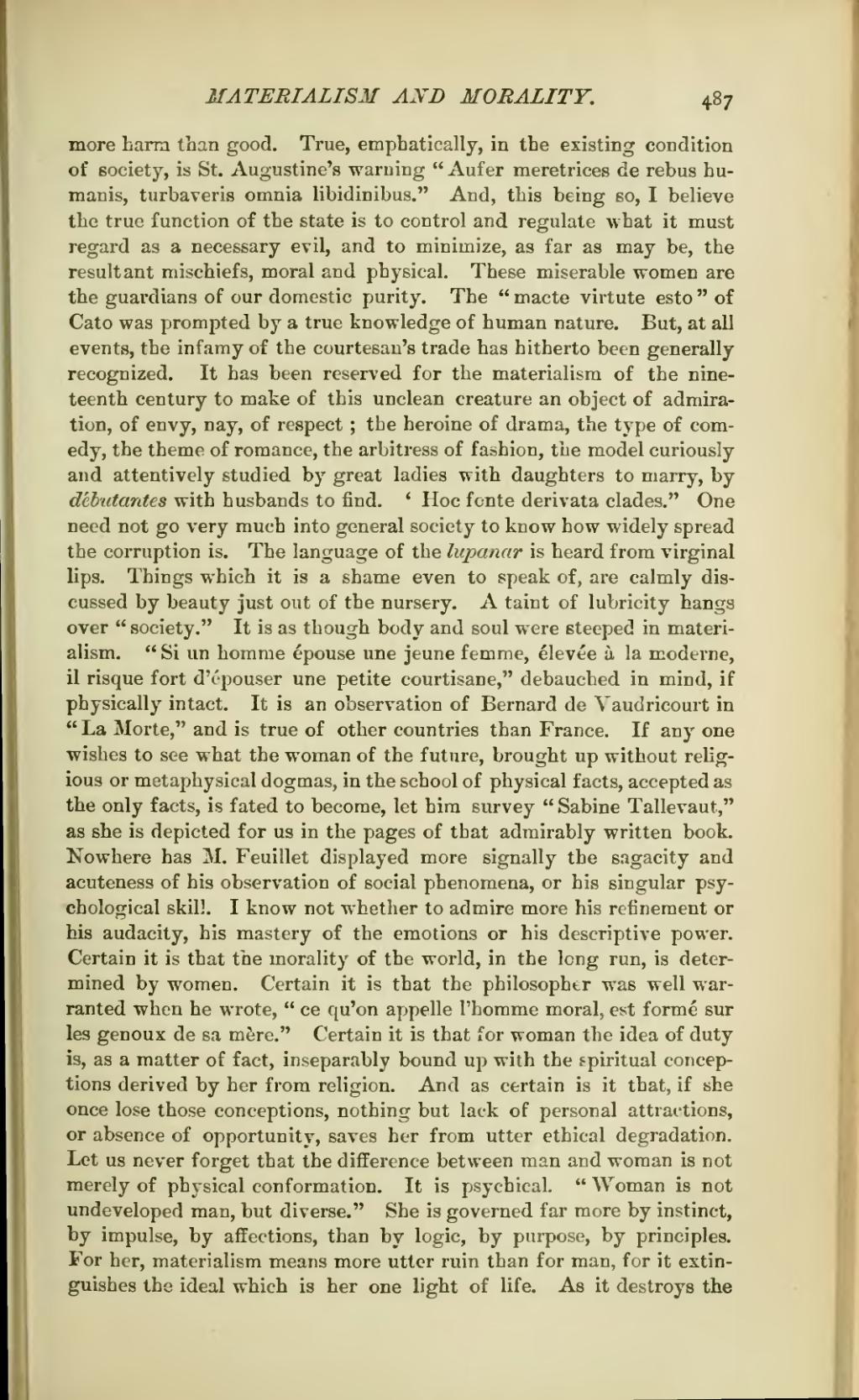more harm than good. True, emphatically, in the existing condition of society, is St.Augustine's warning "Aufer meretrices de rebus humanis, turbaveris omnia libidinibus." And, this being so, I believe the true function of the state is to control and regulate what it must regard as a necessary evil, and to minimize, as far as may be, the resultant mischiefs, moral and physical. These miserable women are the guardians of our domestic purity. The "macte virtute esto" of Cato was prompted by a true knowledge of human nature. But, at all events, the infamy of the courtesan's trade has hitherto been generally recognized. It has been reserved for the materialism of the nineteenth century to make of this unclean creature an object of admiration, of envy, nay, of respect; the heroine of drama, the type of comedy, the theme of romance, the arbitress of fashion, the model curiously and attentively studied by great ladies with daughters to marry, by debutantes with husbands to find. 'Hoc fonte derivata clades." One need not go very much into general society to know how widely spread the corruption is. The language of the lupanar is heard from virginal lips. Things which it is a shame even to speak of, are calmly discussed by beauty just out of the nursery. A taint of lubricity hangs over "society." It is as though body and soul were steeped in materialism. "Si un homme epouse une jeune femme, élevée à la moderne, il risque fort d'épouser une petite courtisane," debauched in mind, if physically intact. It is an observation of Bernard de Vaudricourt in "La Morte," and is true of other countries than France. If any one wishes to see what the woman of the future, brought up without religious or metaphysical dogmas, in the school of physical facts, accepted as the only facts, is fated to become, let him survey "Sabine Tallevaut," as she is depicted for us in the pages of that admirably written book. Nowhere has M.Feuillet displayed more signally the sagacity and acuteness of his observation of social phenomena, or his singular psychological skill. I know not whether to admire more his refinement or his audacity, his mastery of the emotions or his descriptive power. Certain it is that the morality of the world, in the long run, is determined by women. Certain it is that the philosopher was well warranted when he wrote, "ce qu'on appelle l'homme moral, est formé sur les genoux de sa mére." Certain it is that for woman the idea of duty is, as a matter of fact, inseparably bound up with the spiritual conceptions derived by her from religion. And as certain is it that, if she once lose those conceptions, nothing but lack of personal attractions, or absence of opportunity, saves her from utter ethical degradation. Let us never forget that the difference between man and woman is not merely of physical conformation. It is psychical. "Woman is not undeveloped man, but diverse." She is governed far more by instinct, by impulse, by affections, than by logic, by purpose, by principles. For her, materialism means more utter ruin than for man, for it extinguishes the ideal which is her one light of life. As it destroys the
Page:Popular Science Monthly Volume 30.djvu/507
Appearance

